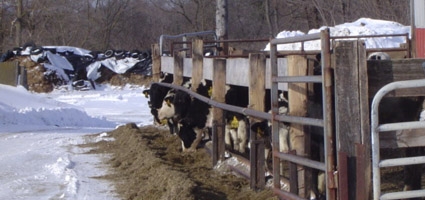Plymouth passes ‘Right to Farm’ law
PLYMOUTH – Right to Farm Laws prohibit local governments from placing restrictions on agricultural practices like spreading manure or storing field machinery and vehicles outdoors.
The law also prevents neighbors from filing lawsuits against farms for creating odors, noises and dust.
Monday, the Plymouth Town Board unanimously passed its own Right to Farm law, 5-0, after a short public hearing.
The measure will protect existing farms from new landowners that may not be used to, or have unfounded gripes against, agriculture operations, say town Supervisor Jerry Kreiner and Councilman Robert Baker.
“It makes sense,” said Kreiner. “People need to realize this is a farming community. It’s a big part of our economy, and they have to realize it’s here.”
Under the law, any party looking to purchase property within 500 feet of a farm operation must be notified before the sale.
Also, complaints against a farm operation, if unable to be worked out, will have to filed with a dispute resolution committee appointed by the town. If that doesn’t work, the state Department of Agriculture and Markets will make a final determination.
While it protects conventional farms, critics of Right to Farm say the law sets a precedent for unsound agriculture operations to move in because legal tools, like the ability to file a lawsuit in open court, are taken away from landowners, new and old, and replaced with layers of bureaucratic hearings.
According to copy obtained Monday, the law protects “sound” agricultural practices that are:










Comments